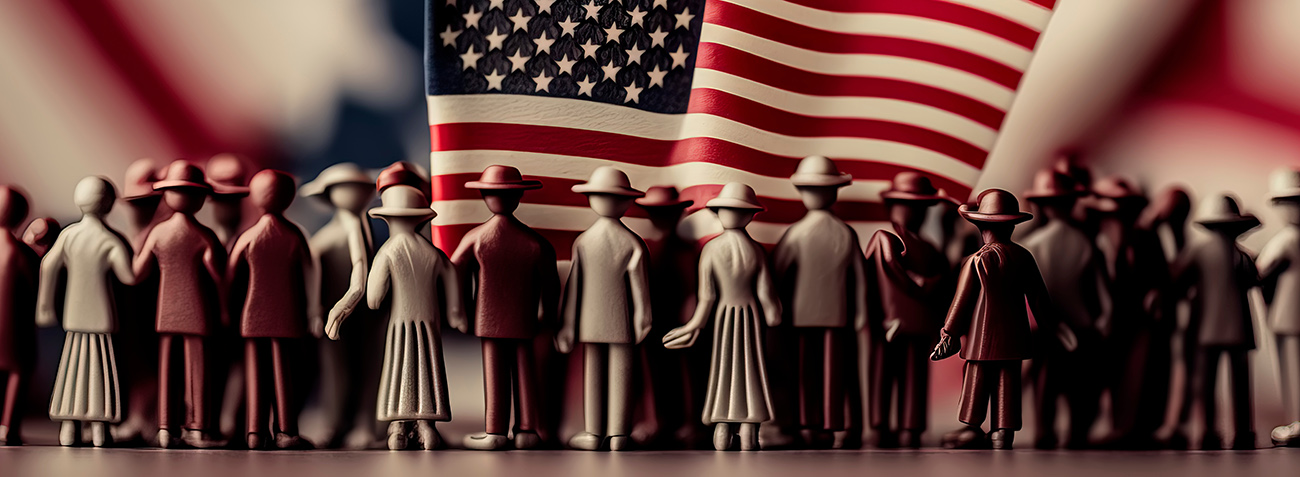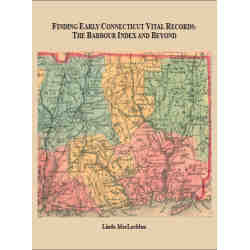
As a body of records, naturalization and denization records are of considerable value, but, until recently, were very difficult to access.
Comparable in many ways to census records, naturalization records are a mine of priceless information and include such items as place and date of birth, foreign and current places of residence, marital status, names, ages and places of birth of other family members, occupation, port and date of entry into the U.S., and more. Since any court of record can process naturalization papers, records relating to naturalization can be found in a bewildering variety of courts.
There are two publications that can help untangle the mess that can be locating naturalization records: Guide to Naturalization Records in the United States and Denizations and Naturalizations in the British Colonies in America, 1607-1775.
Guide to Naturalization Records in the US
Until the appearance of the Guide to Naturalization Records in the United States, there was no practical means of locating these widely scattered records, nor any reference tool that even made an attempt at centralizing information.
State by state, county by county, city by city, the Guide to Naturalization Records in the United States identifies all repositories of naturalization records, systematically indicating the types of records held, their dates of coverage, and the location of original and microfilm records. The book also pinpoints the whereabouts of federal court records in all National Archives facilities, and it identifies every single piece of information on naturalizations that is available on microfilm through the National Archives or the Family History Library System, including the call numbers used by each institution.
Naturalization Records in the Colonial US
When dealing with colonial-era records, at a minimum these records provide the person’s name and date and colony of naturalization. In many cases they also state the person’s county of residence, date of birth, country of birth, occupation, religion (mostly for Jews), or the name of a family member. Despite their value, colonial naturalization records have been under-utilized because they are widely dispersed.
During the colonial period, according to law, an Englishman was a person of English descent born on English soil. The English colonies qualified as “English soil,” so an Englishman who immigrated to the colonies could transfer his citizenship to his offspring. (On the other hand, the son of an Englishman born in Holland, for example, was not a citizen and had to undergo naturalization in order to acquire realty and transfer it to his heirs.)
After the Crown opened up its colonies to the foreign-born in order to increase the colonial labor supply, the issue of naturalization became increasingly important. Why? Although naturalization did not confer political rights upon naturalized persons, it was critical for property ownership and the conferring of property rights to one’s offspring. For this reason thousands of Palatine Germans, French Huguenots, Scots, and Irish, as well as Dutch, Spanish, Danes, Norwegians, and other immigrants availed themselves of the opportunity to be naturalized.
There were two avenues available to foreigners who desired to become English citizens:
- Naturalization per se was conferred by an act of Parliament or colonial legislature;
- Denization was conferred by the King or his agent, the colonial governor.
When dealing specifically with the British Colonies in America genealogist Lloyd Bockstruck attempted to solve the problem of these fractured records. In Denizations and Naturalizations in the British Colonies in America, 1607-1775, Mr. Bockstruck has assembled every reference to a colonial naturalization or denization known to exist. The result is an alphabetically arranged list of about 13,000 naturalizations compiled from published sources and expanded and improved by the examination of source material not previously available to scholars. Researchers should also consult the index to the volume, which lists all persons mentioned in the records other than the new citizens themselves.
Bockstruck wrote an excellent introduction to this work. In it, he describes the twists and turns in naturalization law and policy during the colonial period. Also found in the introduction is a comprehensive bibliography of the naturalization literature itself. These features round out a book that is destined to become synonymous with the research in colonial naturalization records.
Following is a list of colonial jurisdictions that yielded the naturalization or denization records included in the volume:
- England
- Connecticut
- Delaware
- Florida (East and West)
- Georgia
- Maryland
- Massachusetts
- New Hampshire
- New Jersey
- New York
- North Carolina
- Nova Scotia
- Pennsylvania
- Rhode Island and Providence Plantations
- South Carolina
- Virginia
- Quebec
- Jamaica
We’ve found both publications very useful in both beginning and more advanced research with naturalization records.
Image Credit: Blank naturalization certificate filled in in mss. and dated 24 Sept. 1765, Library of Congress.






